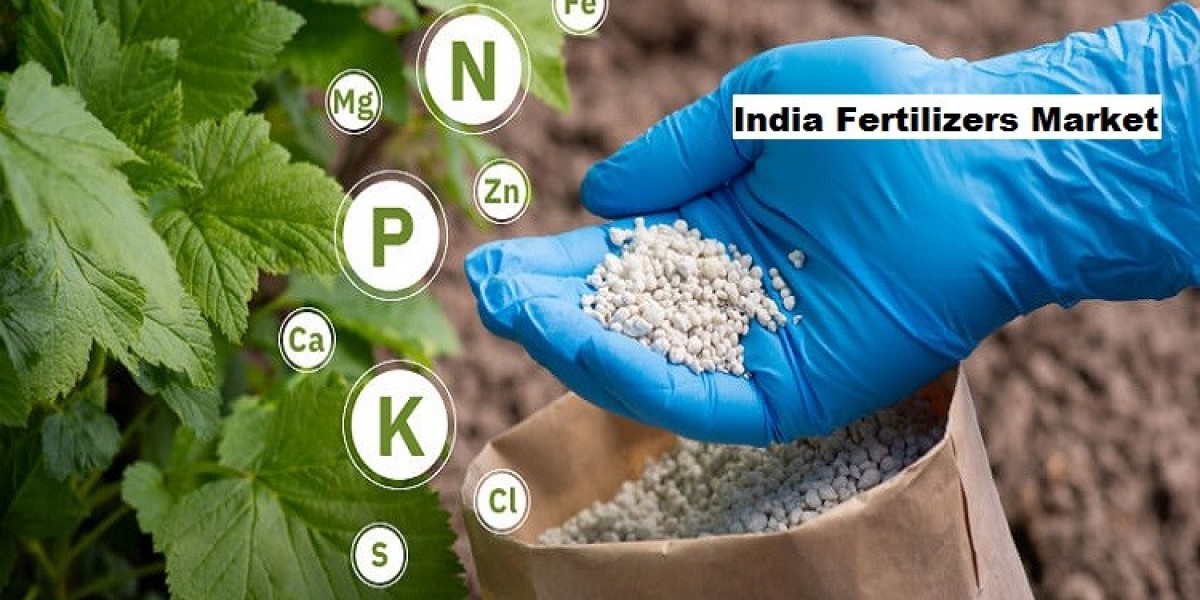According to TechSci Research report, “India Fertilizers Market - By Region, Competition, Forecast and Opportunities, 2020-2030F”, the India Fertilizers Market was reached reach 43.76 Million Metric Tonnes by 2024 and is anticipated to project robust growth to reach 58.30 Million Metric Tonnes with a CAGR of 4.85% through 2030.
The Indian government's initiatives in the fertilizer sector have created favorable market conditions and spurred growth in various fertilizer products. With a focus on promoting sustainable agricultural practices, the government is actively encouraging the balanced and judicious use of fertilizers, including organic options. This initiative aims to reduce reliance on chemical fertilizers and enhance soil health in the long run. A significant step in this direction is the introduction of a comprehensive "Fertilizer Quality Control System" by the government.
This system includes the implementation of a single brand for fertilizers, ensuring uniform quality standards across the market. By standardizing fertilizer brands, farmers can trust the quality and efficacy of the products they use, leading to improved agricultural productivity and the overall welfare of the farming community. These government-led efforts underscore a commitment to fostering sustainable agriculture and promoting the well-being of farmers across India.
India's geographical landscape, stretching from the Himalayas in the north to the Indian Ocean in the south, encompasses diverse terrains conducive to agriculture. The Indus-Ganges plain in central India, the Deccan Plateau, and coastal plains in the east and west provide fertile ground for cultivation. With abundant flat terrain across the country, India enjoys a significant advantage for agriculture, fostering year-round crop growth. This favorable natural environment has positioned India as the world's second-largest consumer of fertilizers, trailing only behind China.
In terms of fertilizer production, Indian manufacturers produced approximately 32.4 million tonnes in 2012-2013, yet this falls short of meeting domestic demand, necessitating imports to bridge the gap. While fertilizer output has been increasing steadily, manufacturers are investing in equipment upgrades and productivity enhancements.
However, the government's subsidy policies, aimed at supporting small and medium corporations, have shown mixed effectiveness, particularly in addressing the production status of different fertilizers. The fertilizer market in India remains robust, driven by the country's significant agricultural sector, which contributes 25% to the GDP. Demand for fertilizers, especially diammonium phosphate and urea, remains high. India ranks as the world's third-largest nitrogenous fertilizer producer and the second-largest consumer of fertilizers, trailing only behind China.
Despite domestic production efforts, India continues to rely on imports, particularly for urea and diammonium phosphate, with the demand for organic fertilizers also witnessing a notable uptick in recent years. Looking ahead, India's fertilizer market is poised for sustained growth, with projections indicating a continued reliance on imports to meet demand. By 2020, India is expected to require 10 million tons of imported urea annually, while maintaining substantial imports of diammonium phosphate. Amidst these dynamics, the demand for organic fertilizers is anticipated to further rise, underscoring the evolving landscape of India's agricultural sector.
One of the main areas of focus in research and development (R&D) is the continuous development of new fertilizer formulations. Through extensive experimentation and innovation, R&D initiatives aim to create fertilizers with enhanced nutrient content and improved absorption capabilities. This not only helps to address the specific nutrient requirements of different crops but also contributes to boosting productivity and profitability for farmers.
For instance, the development of slow-release fertilizers has revolutionized the way nutrients are delivered to plants. These advanced formulations release nutrients gradually, providing a sustained and consistent supply over an extended period of time. This promotes better nutrient uptake by plants, resulting in improved plant health, enhanced root development, and ultimately higher yields.
Browse over XX market data Figures spread through XX Pages and an in-depth TOC on "India Fertilizers Market.”
https://www.techsciresearch.com/report/india-fertilizers-market/4899.html
The India Fertilizers Market is segmented into crop type, mode of application, regional distribution, and company.
Based on crop type, the grains & cereals segment emerged as the dominant segment in the Indian market for fertilizers in 2024. In India, grains and cereals like rice, wheat, and maize are not only staple food crops but also deeply ingrained in the cultural and culinary heritage of the country. From the fragrant basmati rice of the northern regions to the fluffy idlis made from fermented rice batter in the south, these grains are celebrated in diverse regional cuisines. With a rich history of agriculture, these crops have been cultivated for centuries, adapting to the unique soil and climate conditions of different regions.
The cultivation of grains and cereals in India is a fascinating blend of traditional farming practices and modern techniques. Farmers employ a variety of methods, from organic farming to mechanized agriculture, to ensure optimal yield and quality. The use of hybrid seeds, precision farming techniques, and efficient irrigation systems has significantly contributed to the increased productivity of these crops.
Beyond their importance in the domestic market, Indian grains and cereals also make a significant contribution to the global food supply. India is one of the largest producers and exporters of rice, wheat, and maize, meeting the demands of not only its own population but also those of other countries. The export of these crops not only brings economic benefits but also fosters international trade and strengthens global food security.
The Indian government recognizes the critical role of fertilizers in supporting the growth of grains and cereals. In addition to subsidies, the government has implemented various schemes and programs to promote sustainable agriculture practices and reduce the environmental impact of fertilizer use. These initiatives aim to strike a balance between meeting the growing demand for food and ensuring the long-term sustainability of agricultural systems.
As India continues to evolve and embrace technological advancements, the agriculture sector is also undergoing a transformation. The adoption of digital technologies and precision agriculture tools holds the promise of further optimizing crop production and resource management. This, in turn, will contribute to the continued growth and resilience of the grains and cereals sector in India.
Based on region, North India region is expected to experience fastest grow during the forecast period. the North India region is anticipated to witness the fastest growth. Several factors contribute to this projection, including the region's fertile agricultural lands, favorable climatic conditions, and robust infrastructure. Additionally, ongoing government initiatives aimed at promoting agricultural development and investment in the region are expected to further stimulate growth.
The North India region encompasses key agricultural states such as Punjab, Haryana, Uttar Pradesh, and Rajasthan, known for their significant contributions to the country's agricultural output. These states benefit from extensive irrigation networks, enabling year-round cultivation and higher crop yields. Furthermore, increasing adoption of advanced farming practices, including precision agriculture and mechanization, is likely to drive productivity gains in the region. Overall, the conducive agro-economic environment in North India positions it as a leading contributor to the growth of the agricultural sector during the forecast period.
Major companies operating in India Fertilizers Market are:
- Indian Farmers Fertiliser Cooperative Limited (IFFCO)
- Rashtriya Chemicals and Fertilizers Limited
- Coromandel International Limited
- Tata Chemicals Limited
- Gujarat Narmada Valley Fertilizers & Chemicals Limited
Download Free Sample Report
https://www.techsciresearch.com/sample-report.aspx?cid=4899
Customers can also request for 10% free customization on this report.
“The India Fertilizers Market is experiencing steady growth, driven by various factors such as increasing agricultural activities, government initiatives, and technological advancements. The government's focus on promoting balanced fertilizer use and encouraging the adoption of organic alternatives has contributed to market expansion. Additionally, initiatives aimed at streamlining fertilizer quality control systems have instilled confidence among farmers, ensuring the availability of high-quality products.
The market's growth is further propelled by rising demand for fertilizers in key agricultural regions across the country, particularly in North India. With ongoing investments in infrastructure and efforts to enhance agricultural productivity, the India Fertilizers Market is poised for continued expansion in the coming years, providing essential support to the nation's agricultural sector and contributing to overall economic development,” said Mr. Karan Chechi, Research Director of TechSci Research, a research-based management consulting firm.
“India Fertilizers Market, By Crop Type (Grains & Cereals, Pulses & Oilseeds, Commercial Crops, Fruits & Vegetables, Others), By Mode of Application (Foliar Spraying, Fertigation, Sowing, Drip Method, Others), By Region, Competition, Forecast and Opportunities, 2020-2030F”, has evaluated the future growth potential of India Fertilizers Market and provides statistics & information on market size, structure, and future market growth. The report intends to provide cutting-edge market intelligence and help decision makers take sound investment decisions. Besides, the report also identifies and analyzes the emerging trends along with essential drivers, challenges, and opportunities in India Fertilizers Market.
Contact Us-
TechSci Research LLC
420 Lexington Avenue, Suite 300,
New York, United States- 10170
M: +13322586602
Email: sales@techsciresearch.com
Website: www.techsciresearch.com









